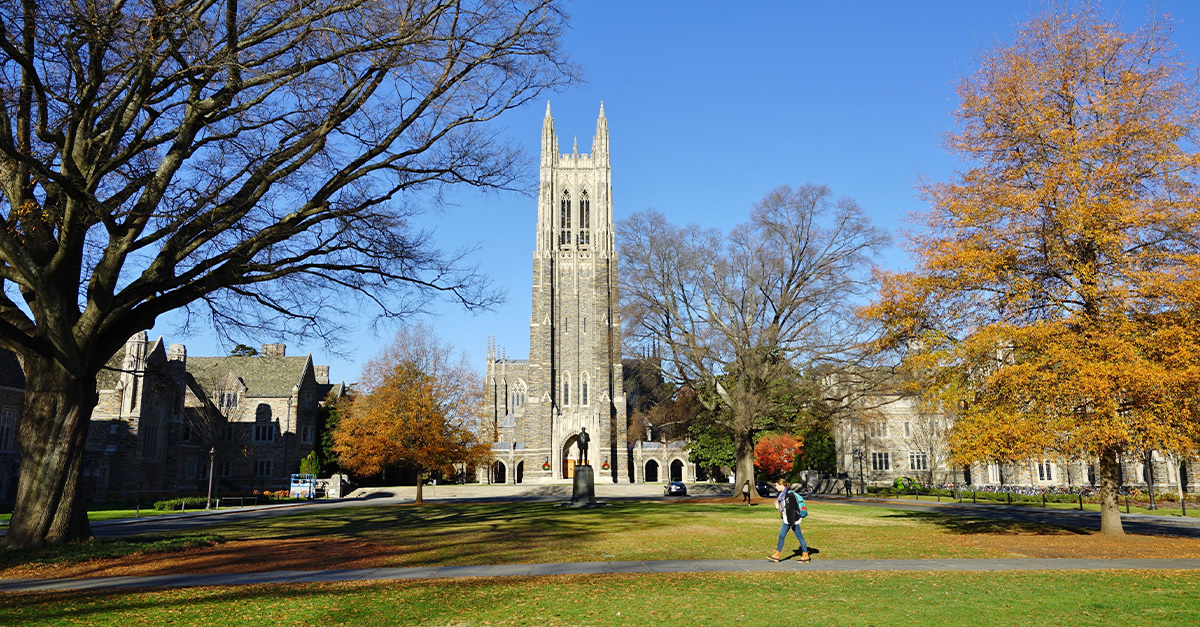


Get a free copy of Parental Rights & Education when you subscribe to our newsletter!

The student body government at Duke University denied official recognition to a pro-Israel student group called Students Supporting Israel (SSI), prompting a response from administrators and investigation into whether students were discriminated against on the basis of national origin and religion.
Duke University President Vincent E. Price and Provost Sally Kornbluth clarified in a statement that they could not disclose specific details of the controversy over SSI due to federal privacy laws, but the tenor of their statement implies that, at the very least, there could be an element of anti-Semitism at play in the objection made by the student body government to recognizing the pro-Israel group.
The administrators emphasized the university’s “steadfast commitments” to the school’s Jewish community, also noting that the “long history of conflict and violence that have afflicted” Israel and the region of Palestine and the “deep sense” of justice and injustice often intertwined with discussions on the issue that dialogue can sometimes “veer into rhetorical territory that dehumanizes and distances rather than engages.”
The statement concluded, “On our campus and beyond, the lines of politics, trust, activism and civility cannot become so blurred that we lose our commitment to mutual respect. We must guard against the danger that our passions obscure our common humanity, and we must remind ourselves that what injures any one of us injures us all.”
Price and Kornbluth also made clear that SSI was still free to operate despite the lack of formal recognition and that “the university has identified options for SSI to secure financial and programmatic support.”
The students of SSI, however, aren’t satisfied with this concession.
“We still seek the administration to get involved and reverse the unjust decision made by the student government that cancelled SSI due to our speech and to register SSI as a club on campus just like any other club,” the group’s president told Fox News. “SSI isn’t looking to have special status on campus. We look to be treated just like any other club, and the university has the power to do so.”

Who is in charge at Duke University? The students or the administration? This is a question that colleges across the country had better start addressing as a growing number of angry, radical, left-wing students are increasingly taking charge of campus life at the expense of free speech and due process, insisting that schools operate “my way or no way.”
While the words of Duke’s president and provost are certainly conciliatory and diplomatic, the report that the university has gotten involved with the supposedly autonomous student government’s decision also suggests that the school can, to a certain degree, make sure that the students’ self-governance is conducted under the umbrella of the institution’s broader values.
Still, for all the apt recognition that the debate over Israel and its authority within the region can stray into the inflammatory and downright racist, Duke officials certainly could have stood up for the spurned pro-Israel student group and demanded that student government leaders recognize it rather than weakly tell SSI to find a way to operate outside of the clearly biased student government.
While the student government may be independent of the university’s decisions and approval, Duke University is still largely responsible for the overall culture that is created at the school, and sending a message that students who support the nation of Israel are not worthy of official recognition by their peers underscores the growing, radical, left-wing notion that Israel itself is not worthy of recognition.
This is dangerous stuff.
Price and Kornbluth wrote in their statement that they wanted to take the opportunity to “underscore our steadfast commitments to Duke’s Jewish community; to our shared values; to robust and open debate; to students’ rights to associate, including student self-governance; and to a campus free from racism and anti-Semitism.”
They’ve stated this commitment. But are they truly acting upon it? That remains to be seen, but treading the safe middle ground and appeasing the most strident bullies are not exactly hallmarks of the kind of principled leadership they’ll need to exercise in order to fulfill those commitments.
Notifications